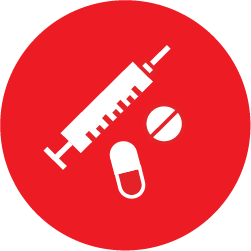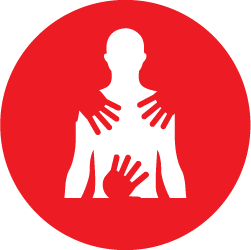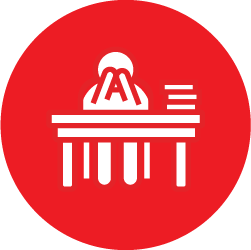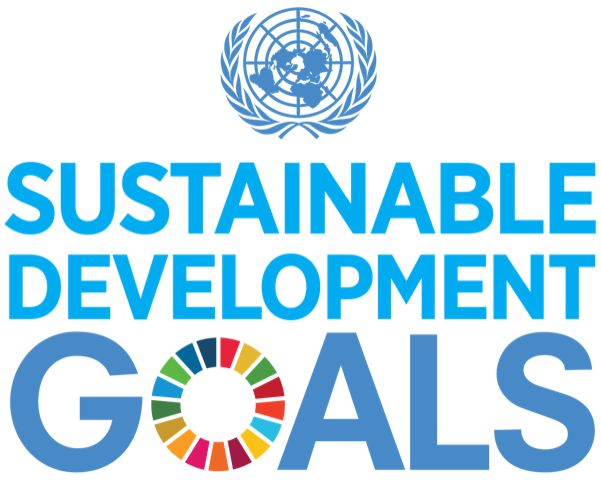
Supporting children and young people globally to safely transition into adulthood.
BREAKING TABOOS
Our mission is to provide globally accessible gamified multi-channel learning programs that foster children’s and young people’s physical and mental health, with the aim to protect their health and future potential.

BREAKING TABOOS
Child and adolescent mental
health is a global priority
Childhood and adolescence are crucial life stages in which social and emotional skills, knowledge and behaviours are learned that shape future mental an physical health and are important for assuming adult roles in society.
Our values

Visionary & innovative
We tackle socially sensitive issues, crucial to the mental and sexual well-being of children and young people by providing gamified education programs.

Inclusive
We advocate for the belief that everyone should have the opportunity to fulfil their full potential, irrespective of their health, cultural, social, sexual orientation or gender status.

Empowering
Passionately, we develop free accessible education programs to empower young people in cultivating knowledge, communication, and sound decision-making skills.

Respectful
Our engagement with all individuals is founded on respect, kindness, empathy, and dignity.
The Challenge
Child and adolescent mental health (CAMH) education is still a big taboo worldwide and thus marginalised both in the public education sector and society.
The lack of access to CAMH is a huge concern across the globe as it exposes children and young people to heavy, often long-term consequences:





OUR SOLUTION
More resources are needed to improve both access and quality of CAMH education.
That’s why Taboobreaker is developing multi-channel programs that are accessible worldwide and provide safe and risk-free learning environments that promote the acquisition of skills and knowledge in a playful and age-appropriate way.

Serving the SDGs
Our programs aim to contribute to the achievement of the following requirements of the UN Sustainable Development Goals:


Our current programs
Welcome to Safeland
Safeland is a multi-channel program that supports children aged 5-9 years in fostering their mental and physical health. Children travel from island to island and solve tasks playfully with the support of JJ the meerkat.
Welcome to Love Land
Love Land is a multi-channel program that supports young people from 10-18 years in fostering their mental, physical and sexual health.
On Love Land, the user acquires relevant knowledge, communication and sound decision making skills by discovering the islands of Love Land with a balance of fun and learning.
Learn more about us
Watch our promotion video to learn more about
the taboobreaker association and Love Land.
Frequently asked Questions
Sexual health and reproductive health, while distinct, are closely linked.
Sexual health is the physical, emotional, mental and social well-being related to sexuality.
It includes not only the avoidance or improvement of diseases, dysfunctions or infirmities, but also the positive and respectful handling of sexuality, the living out of sexual relationships, pleasurable and self-determined sexual experiences that are free from discrimination and violence.
Sexual health is therefore closely linked to sexual rights, such as the right to sexual self-determination and protection from sexual or sexualised coercion and violence. In many countries around the world, sexual health and rights are inextricably linked to reproductive health and reproductive rights. This is often referred to by the acronym SRHR – sexual and reproductive health and rights. In some countries, the right to sexual health includes the ability to enjoy and enjoy sexuality.
In addition, the Sustainable Development Goals (SDGs) for sexual (and reproductive) health developed by the United Nations in 2015 include several relevant goals and targets, e.g. related to health, education and gender equality. The goals and targets cover many key aspects of sexual and reproductive health, including access to sexual and reproductive health (SRH) services, comprehensive sexuality education and the ability to make decisions about one’s own health.
The SDGs aim to end poverty, hunger, AIDS and discrimination against women and girls.
The creativity, know-how, technology and financial resources of the whole of society are needed to achieve the SDGs in every context.
Too many young people still experience the transition from childhood to adulthood with inaccurate, incomplete or judgmental information that impairs their physical, social and emotional development. In many societies, attitudes and laws make public discussion of sexuality and sexual behaviour difficult, and social norms can perpetuate harmful conditions.
These factors put children and young people at high risk of exploitation and other harmful consequences.
Therefore, comprehensive sexuality education (CSE) is essential to prepare young people for safe, productive and fulfilling lives in a world where sexually transmitted infections (STIs) including HIV, unwanted pregnancies, gender-based violence (GBV) and gender inequality pose serious risks to their well-being.
Young people are thought to receive information on sexual issues from informal sources such as peers or social media; and their willingness to take preventive action may be affected by barriers or changing factors related to prevention or treatment of the disease. Attitudes and values regarding gender and sexuality are thought to be formed in early childhood and during adolescence, eventually dictating sexual behaviour and influencing individuals into adulthood.
CSE has therefore been shown to enable children and young people to develop accurate and age-appropriate knowledge, attitudes and skills; positive values, including respect for human rights, gender equality and diversity; and attitudes and skills that contribute to safe, healthy and positive relationships.
CSE is also important because it can help young people reflect on social norms, cultural values and traditional beliefs to better understand and shape their relationships with peers, parents, teachers, other adults and their communities.
Reproductive health refers to the condition of the male and female reproductive organs at all stages of life. These systems consist of organs and hormone-producing glands.
The ovaries in women and the testes in men are reproductive organs or gonads that maintain the health of their respective systems.
Reproductive health is a state of complete physical, mental and social well-being and not merely the avoidance or alleviation of disease or infirmity in all matters pertaining to the reproductive system and its functions and processes. Reproductive health means that people are able to have a satisfying and safe sex life, and that they have the ability to reproduce and the freedom to choose whether, when and how often to do so.
Under international and regional human rights law, reproductive health is linked to reproductive rights: Freedom from discrimination, contraceptive information and services, safe pregnancy and childbirth, abortion and post-abortion care, comprehensive sex education, freedom from violence against women and HIV/AIDS.
International standards on reproductive rights are enshrined in major human rights treaties and are constantly evolving. International treaty bodies and regional human rights mechanisms play an important role in the ongoing consolidation and elaboration of these standardsThese factors put children and young people at high risk of exploitation and other harmful consequences.
Therefore, comprehensive sexuality education (CSE) is essential to prepare young people for safe, productive and fulfilling lives in a world where sexually transmitted infections (STIs) including HIV, unwanted pregnancies, gender-based violence (GBV) and gender inequality pose serious risks to their well-being.
Young people are thought to receive information on sexual issues from informal sources such as peers or social media; and their willingness to take preventive action may be affected by barriers or changing factors related to prevention or treatment of the disease. Attitudes and values regarding gender and sexuality are thought to be formed in early childhood and during adolescence, eventually dictating sexual behaviour and influencing individuals into adulthood.
CSE has therefore been shown to enable children and young people to develop accurate and age-appropriate knowledge, attitudes and skills; positive values, including respect for human rights, gender equality and diversity; and attitudes and skills that contribute to safe, healthy and positive relationships.
CSE is also important because it can help young people reflect on social norms, cultural values and traditional beliefs to better understand and shape their relationships with peers, parents, teachers, other adults and their communities.






